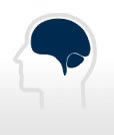Prof. Dr. Gregor SchÖner, Theory of Cognitive Systems, Institute for Neural Computation

Research Programme:
Understanding how nervous systems structure the behavior of organisms so that the simplest forms of cognition may emerge is the over-arching goal of the "embodied cognition" research group headed by Gregor Schöner. This amounts to an effort to reexamine the foundations of our understanding of cognition in a manner that takes into account the linkage of cognitive processes to sensory and motor surfaces, the embedding of organisms in highly-structured and specific environments as well as the neural basis of cognitive processing.
The methodology of the group is to provide the theoretical component to a number of close theory-experiment collaborations, each centered around an exemplary model system. These collaborations span a diverse array of fields including motor control, movement planning, spatial memory, the perception of motion, and the development of motor and perceptual representations. The theoretical tools that structure our mathematical modelling include attractor dynamics and dynamic field theory. In collaboration with the autonomous robotics group we occasionally used robotic implementations to demonstrate the feasibility and sufficiency of our theoretical conceptions.


